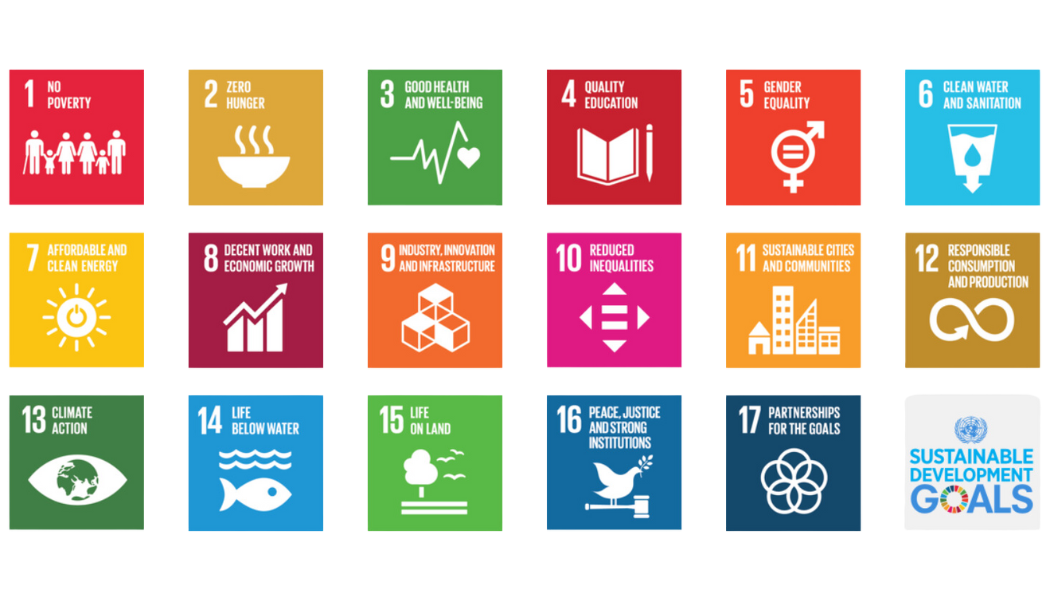
33,980
homes*
Since our formation in 2017, Karbon has focused on delivering our three strategic aims - to provide as many good quality homes as we can, to deliver excellent service to our customers, and to shape strong, sustainable places for our communities.
Our footprint covers the North East of England and Yorkshire, with around 34,000 homes across diverse communities, all facing different opportunities and challenges.
Some customers just need an affordable home, or a way onto the property ladder. Others might need more – financial advice, community services, sheltered accommodation or training that can lead to a new job. Whatever people need to feel more secure, confident and happy with their lives, we work hard to provide it.
We believe that by focusing on our three strategic aims, combining a sound business head with a strong social heart and staying true to our values, we can build strong foundations for even more people.
We are, of course, always striving to improve our performance and look for ways in which we can deliver value for money and high-quality homes and services for our customers and communities.
We continue to deliver hundreds of new affordable homes - 707 in total last financial year for Karbon Group, all at high standards. The percentage of our new homes that reach the EPC A standard has gone from 18% in 23/24 to 44% in 24/25. Our use of Modern Methods of Construction in developing our homes also increased over the same period from 22% to 33%.
Then there’s our development at Seaham Garden Village where we are building 750 affordable homes which will be heated through a mine water heating scheme providing cheaper energy costs for customers. This has only been made possible through collaborative working between Durham County Council, the Mining Remediation Authority and ourselves, alongside renewable energy company Vital Energi who will design, build and operate the network.
Our Good to Great (G2G) Programme is another good example of moving forward with purpose. While the aim of the project is to build on our existing customer service strengths taking us from ‘good to great’, the work will also help us identify where we can be more efficient which will help us stand strong for the future.
And at the same time, Karbon continues to grow in scale.
Leazes Homes – a specialist supported housing provider - became our newest subsidiary last year bringing an extra 759 homes into the Karbon family and developing our supported housing offering in Newcastle.
Our Yorkshire-based subsidiary 54North Homes continues to thrive, managing the ever-growing number of new homes we’re delivering across Yorkshire alongside existing stock. Just under 60% of Karbon’s development programme this year was delivered in York, North Yorkshire, Wakefield and East Riding.
And while we’ll carry on looking forward to further growth in the future, we can’t ignore the role we are already playing in people’s lives right now. We received an award from the North East Chamber of Commerce for Community Business of the Year and our work with the Housing Employability Network North East was recognised when HENNE won Northern Housing Partnership of the Year at the Northern Housing Awards. Both awards show the positive impact we continue to make in struggling communities.
It has been a challenging but rewarding year, and we hope you enjoy reading about our achievements, challenges and learnings.

Paul Fiddaman, Group Chief Executive
Note to reader: The Karbon Group consists of Karbon Homes and its subsidiary 54North. The figures used in this report are for Karbon Homes apart from those marked *

homes*

Decent Homes Standard

new homes completed in 2024/25*

of our homes achieve EPC C or above*

Our rents as an average of a typical market rented property across our region*

energy efficiency upgrades, saving an estimated 489.675TCO2

customers helped through our Money Matters Team, with £6.05m generated for them in additional income

colleagues all paid at living wage or above*

mean gender pay gap*

Colleague Net Promoter Score in 24/25*

top governance and viability regulatory rating*

S&P rating*
* Karbon Group figures
Our work has a direct impact against the UN Sustainable Development Goals, as illustrated below, with ‘sustainable cities and communities’ at the heart. These SDGs helped to form the Sustainability Reporting Standard and will be highlighted throughout:

All housing associations are approaching the net zero challenge from different financial positions and with existing stock in a wide range of different conditions. In Standard and Poor’s most recent analysis of Karbon’s credit position, it noted that, ‘although investments in existing homes are increasing, we view Karbon’s stock quality as solid at just under 80% of homes with Energy Performance Certificate at C or above.’
But even for a housing association in a strong position like ours, the net cost of meeting net zero (after accounting for existing planned investment) is £654m which demonstrates the real challenge housing associations face in reaching net zero.
We have however built the strongest foundations to help us get there. As well as a solid base of EPC C homes, we have also completed housing surveys on 86% of our stock which gives us a clear and rational view of where we should invest, and a robust business plan.
Environmental strategies need to be practical and accountable. With that in mind, we set up our Customer Environment Group not only to influence our strategy but also to ensure we’re delivering against our objectives. The strategy also has a clear line of sight into our formal governance arrangements via the Group Development Committee (GDC) which has now set an agenda that looks beyond building compliance and viability to consider environmental sustainability risks.
We’ve used the SHIFT environmental audit process to inform this section. SHIFT (Sustainable Homes Index for Tomorrow) is an independent assessment scheme which is prevalent in housing. It is designed specifically for social landlords to assess their environmental performance. Their annual assessment helps us to measure our performance and identify and target improvements.
SHIFT give us a rating each year for our environmental efforts and it’s notable that we’ve moved from Silver in 2024 to Gold in 2025. SHIFT recognised particular levels of attainment in our new build standards and the quality of our latest Environmental Strategic Plan.



This year, we were awarded Community Business of the Year by the North East Chamber of Commerce, in recognition of the wide range of community investment and support we provide for our customers, beyond delivering our core services.
This year, we have focused our community investment on projects where we could provide match funding. Match funding is where funders ask the charities bidding for their money to match their donation with additional funding from another source. This can be from their own budget or from another funder like Karbon.
As an anchor institution, contributing match funding to local charities is one of the most effective ways for us to achieve impact through the work of others. And it allows those charities to leverage more money into our region from national donors.
Our long-term partner, Feeding Families, provides a good example. Last year, Feeding Families organised a pilot programme to support families for six weeks through difficult life transitions such as moving tenancy, changing from asylum to refugee status, transitioning to Universal Credit, leaving care and leaving prison. We provided match funding, allowing the charity to create an evidence-base for a bigger National Lottery funding bid. With Karbon’s support, the programme will now roll out across the region.
And as the government continues with national pilots of free breakfast clubs in schools over the next year, we’ve been working with the Greggs Foundation supporting their breakfast clubs with strategic donations as we await those government-funded interventions. Last year we committed to funding a further eight sites, taking our total to 12 sites across our geography.





In December 2024 the Regulator of Social Housing confirmed our governance and viability rating of G1/V1, the highest grade available in our sector which we have held for seven years.
The rating scrutinises the approach that our Board and management teams take to ensuring that we balance our resources effectively across our strategic aims, maximising value for money, and ensuring we understand the risks faced by our business, whether they are unique to us or that affect the sector as a whole. What our G1/V1 rating says is that as a provider we have the capacity and ability to mitigate our exposures effectively.
Our latest RSH inspection is taking place over summer 2025, with results due in September. And we embrace the recent inclusion of the new consumer standards (changing what is now the ‘G/V’ rating to a ‘G/V/C’ rating.)
We’ve been following the progress of the consumer standards since 1 April 2024 when we conducted a pre-emptive gap analysis with mock inspections from Savills which indicated that we should achieve another positive result. We try to ensure we are as customer centric as possible with customer safety being our highest priority.
Our financial outlook is also good. S&P Global Ratings assessed our credit rating as an ‘A’ outlook stable and observed that ‘despite pressure from planned high investments in existing stock and debt-funded development, Karbon’s management team will effectively control costs and utilise operational flexibility to improve adjusted EBITDA and stabilise debt metrics over fiscal 2026-2028’ recognising our management team as ‘experienced and prudent in its planning’.




The aim of the ESG report is to provide transparency and insight into the challenges we face but also to highlight the opportunities coming our way. For example, the ways in which we apply big spending programmes like domestic retrofit give us unprecedented economic leverage. In tandem, regional devolution has given us the political forum to do things better. We would therefore appeal to a range of stakeholders from institutional investors, local authorities, charities, public and charitable funders to read our report and we invite you to join us in tackling challenges like cost of living, and opportunities like employment and skills and net zero.
For investor queries please contact james.clifford@karbonhomes.co.uk. For customer queries please contact info@karbonhomes.co.uk.
